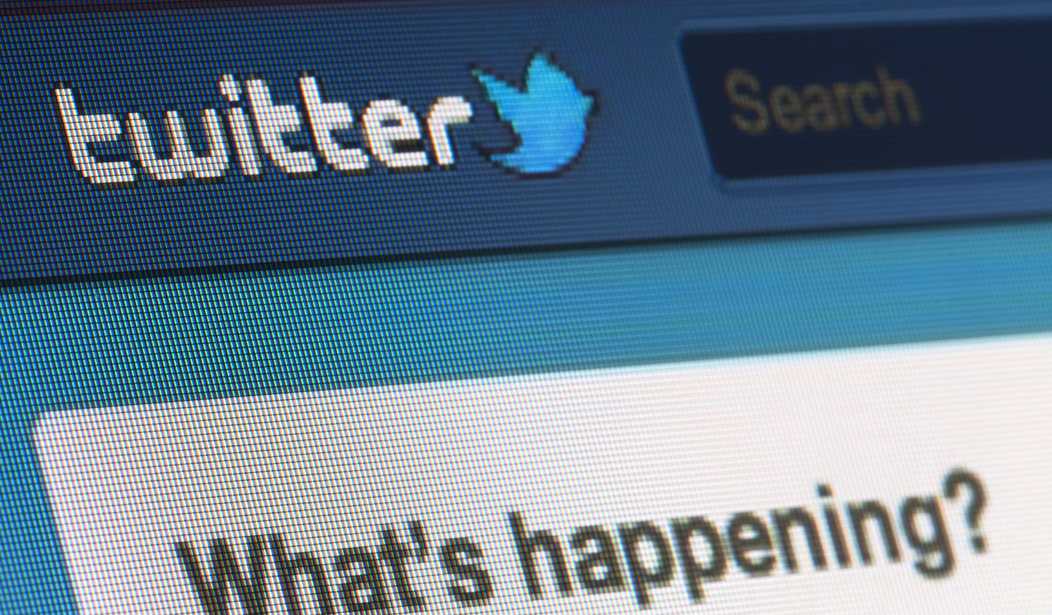Andrew McCarthy has a characteristically crisp and insightful column on Twitter’s new policy regarding speech they deem acceptable for their social media site.
I’ll come back to the particulars of Twitter’s new policy in a moment. First, I invite readers to ponder the title of McCarthy’s column: “Islam v. Free Speech: Twitter Surrenders.” How does Islam come into the picture?
Basically the same way it comes into the picture at places like Georgetown University and Harvard: money, lots of it. Way back in 2005, the billionaire Saudi Prince Prince Alwaleed bin Talal Alsaud gave each university $20 million “to advance Islamic studies and further understanding of the Muslim world.” And that was just a downpayment. According to Martin Kramer, Alwaleed earmarked more than $100 million for “strategic philanthropy” (and this was back in 2009). Remember the case of Yale University Press and the book by Jytte Klausen it published on the so-called “Danish Cartoons”? It’s a good book but, hey, where are the cartoons? How could you publish a book about cartoons and not include the cartoons? That wasn’t Prof. Klausen’s idea. Originally, the book was supposed to include images of the cartoons. But at the last moment, top administrators at Yale University intervened and insisted they not be included. Why? Good question. I wrote about the controversy at length on several occasions and different venues. It was chiefly for the tort for republishing these cartoons, remember, that Muslim terrorists attacked the offices of the French satirical magazine Charlie Hebdo last year, slaughtering almost the entire senior staff. But that’s getting ahead of ourselves. Back in 2009, Yale hinted at Muslim intimidation, but they couched in a concern that the Yale Press not publish things that someone, somewhere, especially someone with a zillion dollars from someplace like Saudi Arabia who was lavishly underwriting an on-line version of the Koran that Yale was publishing.
Stay with me now: this may seem like ancient history, but guess who is Twitter’s second biggest investor? Gosh, if it isn’t ye old Prince Alwaleed who, according to Forbes, now owns 5.17% of Twitter, 34.9 million shares. (The company’s founder, Evan Williams, owns 6.9%). I mention this because, as McCarthy points out, Twitter’s new assault on free expression bears all the hallmarks the broader Islamic attack on free speech. Its strictures are so broad and so vague that they could be used to silence just about anything the commissars at Twitter did not like. Here’s the capsule definition of its new policy regarding “paid advertising products, which are Tweets, trends and accounts.”
Twitter prohibits the promotion of hate content, sensitive topics, and violence globally.
OK. So I too am against “violence globally.” But what about “hate content”? What’s that? What, after all, is “hate speech”? Speech you don’t like, or that Barack Obama or Prince Alwaleed doens;t like? The U.S. still (just barely) has a First Amendment (no thanks to Democratic Senators on the Senate Judiciary Committee who unanimously voted against the First Amendment last summer), and it protects what is usually meant by “hate speech” as well as other things who might not like.
But the real doozy in Twitter’s new policy against free expression emanates from the second item, “sensitive topics.” Twitter “prohibits the promotion of . . . sensitive topics.”
What counts as a “sensitive topic”? The murderous tendencies of Islamists? The stupidity of Twitter executives? The crass and destructive mendacity of Hillary Clinton? Barack Obama’s eye-popping expenditure of public funds on his personal vacations? The low SAT scores of many black studies students? The pathetic whininess of academic feminists? Dermatologically challenged albinos? The list of “sensitive topics” is pretty long.
Perhaps you think this is OK since it applies first of all to “paid advertising content” and not (or “generally not”) “News and information that calls attention to hate, sensitive topics, or violence, but does not advocate for it. But as McCarthy points out, this is really not very reassuring. “In the next sentence,” he notes,
Twitter provides a separate exemption for “commentary” that is much more narrow: The prohibition does not apply to “commentary about products, services, companies, or brands, including potentially negative commentary.” The patent implication is that if “commentary” “calls attention to hate, sensitive topics, or violence,” Twitter reserves the right to ban it even if the commentary “does not advocate” hatred, violence, or other offenses to someone’s delicate sensibilities.
Bottom line? Twitter’s new policy codifies what McCarthy calls the “heckler’s veto,” which is “the law of the jungle.” It was precisely to protect us against that species of majoritarian tyranny that the Founders added the First Amendment to the Constitution.
Yes, Twitter is a private company, and can therefore ban whatever it likes. But as McCarthy writes, Twitter has “millions of users (including me [and me!], and most National Review writers). The new Twitter policy is clearly an effort to shape the public’s understanding of what is and is not tolerable speech. The question is: Is Twitter influential enough to have that effect . . . or will its obnoxious policy prompt protests by users that induce Twitter to rethink its course?”
Good question. I wish I knew the answer. In the meantime, Twitter users, make your feelings on the subject know the bureaucrats at 140-characters Central — if you can find a suitable link (I couldn’t).








Join the conversation as a VIP Member